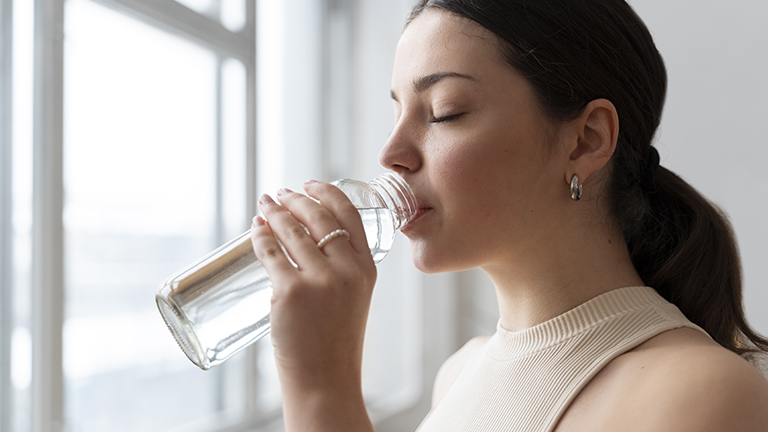Hiccups are common, often harmless, but sometimes frustrating spasms of the diaphragm that can affect anyone—children, adults, and even newborns. While most hiccups resolve on their own within minutes, some can last for hours or days, making people wonder: How to get rid of hiccups? This complete guide explores causes, home remedies, medical treatments, myths, and prevention strategies with expert-backed references for readers in the US, UK, Canada, and worldwide.
What Are Hiccups and Why Do They Happen?
Causes of Hiccups
Common Triggers of Hiccups
- Eating too quickly or swallowing air
- Carbonated beverages and alcohol
- Spicy or acidic foods
- Sudden changes in stomach temperature (e.g., hot coffee followed by cold water)
- Emotional stress or excitement
Medical Conditions That Cause Persistent Hiccups
While most hiccups are temporary, prolonged hiccups (lasting over 48 hours) can be linked to medical conditions, such as:
- Gastroesophageal reflux disease (GERD)
- Stroke or brain injury affecting the hiccup reflex arc
- Diaphragm irritation from pneumonia or pleurisy
- Kidney failure or electrolyte imbalance
- Medications such as steroids or chemotherapy drugs
Quick Remedies for Hiccups
Breathing and Relaxation Techniques
Controlled breathing can reset the diaphragm:
- Hold your breath for 10 seconds, then slowly exhale.
- Breathe into a paper bag for a few minutes (avoid plastic bags).
- Practice slow, deep breathing—inhale for 5 counts, exhale for 5 counts.
Drinking and Eating Methods
Simple swallowing tricks can stop hiccups:
- Drink a glass of cold water quickly.
- Suck on a lemon slice or sip vinegar.
- Swallow a teaspoon of sugar or honey.
- Gargle with cold water.
Pressure Points and Physical Tricks
- Gently pull your tongue to stimulate throat nerves.
- Press on your diaphragm just below the rib cage.
- Bring your knees to your chest and hug them.
- Perform the Valsalva maneuver (pinch nose, close mouth, and exhale forcefully).
Natural Home Remedies for Hiccups
Beyond quick tricks, natural approaches may help regulate hiccups:
- Chamomile tea to relax the diaphragm.
- Ginger tea to soothe digestive irritation.
- Apple cider vinegar mixed with warm water.
- Cardamom powder in warm water to ease spasms.
Medical Treatments for Hiccups
If hiccups last beyond 48 hours, professional medical help is advised. Doctors may recommend:
- Prescription medications: Baclofen, Chlorpromazine, or Metoclopramide.
- Nerve block procedures for severe, persistent hiccups.
- Treating underlying causes such as GERD or infections.
Myths and Misconceptions About Hiccups
Many folk remedies are based on myths:
- Myth: Someone thinking of you causes hiccups.Fact: Hiccups are purely physiological.
- Myth: Drinking lots of alcohol cures hiccups.Fact: Alcohol can actually trigger hiccups.
- Myth: Getting scared always stops hiccups.Fact: Startling may sometimes work, but it’s unreliable.
Prevention Tips
- Eat slowly and chew food thoroughly.
- Avoid overeating and carbonated drinks.
- Reduce spicy and acidic foods if sensitive.
- Manage stress with relaxation techniques.
- Stay hydrated with plain water.
Frequently Asked Questions
Can hiccups last for days?
Yes, persistent hiccups lasting more than 48 hours may signal an underlying health condition and should be checked by a doctor.
Are hiccups dangerous?
Most hiccups are harmless, but chronic hiccups can disrupt sleep, eating, and breathing, leading to complications if untreated.
Do babies get hiccups for the same reasons?
Yes, babies often get hiccups due to an immature diaphragm and swallowing air during feeding. They usually resolve on their own.
Expert References
Conclusion How to get rid of hiccups
Hiccups are usually temporary and can be relieved with simple home remedies like controlled breathing, drinking water, or swallowing sugar. However, persistent hiccups may require medical treatment. By understanding the causes, remedies, and prevention strategies, you can stop hiccups quickly and avoid future discomfort. For chronic cases, always consult a healthcare provider.

